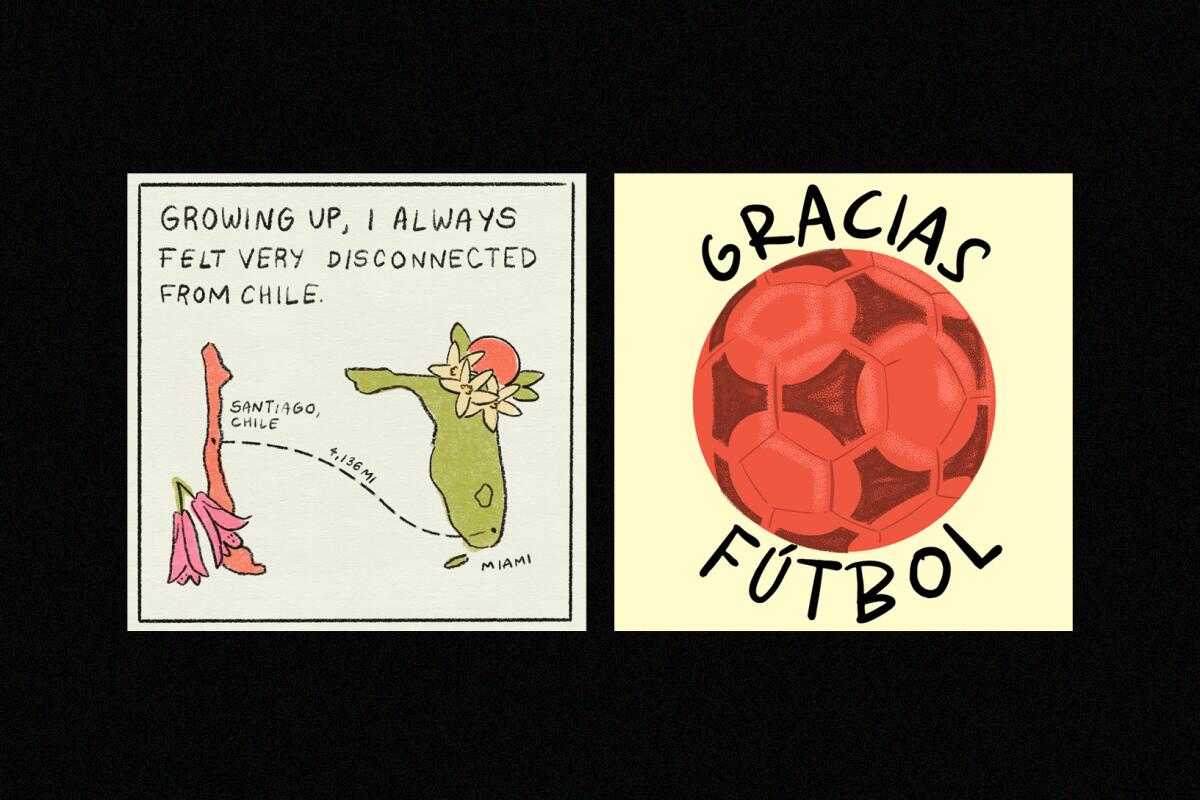Latinx Files: The Latin Grammy Awards go Hispanic

The Latin Grammys are moving to Spain. People had thoughts.
- Share via
Every week, I’m briefly paralyzed by the panic that I won’t have anything to write about for the newsletter. Despite my obvious lack of faith, the content gods always bestow me with a topic.
And boy, was I blessed this week!
On Tuesday morning, Andalusia board President Juanma Moreno announced that the regional government had struck a sponsorship deal with the Latin Academy of Recording Arts. As part of the arrangement, Moreno said, the 2023 Latin Grammy Awards will take place in Spain.
In a statement to Billboard, Latin Academy CEO Manuel Abud said the Andalusian capital of Sevilla will likely host, but the organization is “still working through the logistics with [their] partners TelevisaUnivision.”
The announcement fell on my lap like Maná—winners of nine Latin Grammys and four “Gringo Grammys”— from heaven. I instinctively headed to Twitter to see how folks were taking the news.
“Pique to host or we riot,” quipped a follower, a premise so funny I legitimately spent 10 minutes trying to envision the thick tension in the room as the Spanish footballer awkwardly presented his ex-partner Shakira with the Latin Grammy Award for “Best Diss Track.” (That’s a real category, right? I don’t know. I don’t watch.)
But the most common response seemed to come from people who took issue with something with the word “Latin” being used in the same sentence as Spain. After all, as any geography buff can tell you, the European country isn’t part of Latin America. It didn’t help that the announcement came on the heels of Rosalia, who is Hispanic but not Latina, making history and collecting ample hardware at last year’s award show.
Suffice it to say, the Latinks are salty.
It’s a valid gripe, one which I share. But taking this approach also means you’re giving the Latin Recording Academy too much credit. After all, their definition of what constitutes something as Latin music is more loosey goosey than yours or mine. They don’t care where you were born. All they care about is that your music be in Spanish or Portuguese. That’s it.
The Latinx experience chronicled
Get the Latinx Files newsletter for stories that capture the multitudes within our communities.
You may occasionally receive promotional content from the Los Angeles Times.
What’s wild is that your music doesn’t even have to be entirely in those languages. Per the Latin Recording Academy’s own website, you can submit a song to the “Song of the Year” category as long as it contains “at least 51% of lyrics in Spanish or Portuguese (or accepted languages or dialects) and must be a new song.”
Clearly their definition of what makes something “Latin” is as vague as Rick Caruso’s.
The truth is the Latin Grammy Awards have been contentious from the onset. As former Times journalist Alisa Valdés reported in 2000, the first ceremony was rife with controversy, from Mexican label Fonovisa accusing the organizers of favoring Sony Music and the Estefans to claims of segregation. (The aforementioned report is very much worth your time, by the way. Not only does it highlight that the first Latin Grammy Awards were held a year earlier than scheduled to capitalize on Ricky Martin’s crossover success, but that *NSYNC also performed, which lol.)
I want to make something claro. The Andalusian local government isn’t the bad guy here. As my colleague (and spoiler alert, next week’s guest writer) Suzy Exposito explained to me when I asked for her take on the matter, Spain is going big on music tourism. Moreno said that the sponsorship deal, which cost his local government 18 million euros, could yield as much as 500 million euros in economic benefits. I’m no finance bro, but a 28-fold return on your investment seems like a pretty good deal to me. If the object is to cash in on Latin American culture, then getting the Latin Grammy Awards is not a bad bet.
But in the immortal non-English words of Bad Bunny, they may want to be Latino, “pero les falta sazón.”
I reached out to the Latin Academy for comment and will update accordingly.
Consider subscribing to the Los Angeles Times
Your support helps us deliver the news that matters most. Become a subscriber.
Things we read this week that we think you should read
— Back in November 2021, I wrote about a mural in Brownsville, Texas, that was funded by the Musk Foundation and had pissed off locals because it was painted by a Los Angeles-based artist instead of someone local. Flash forward to now, and Brownsville is set to commission another work of public art funded by the Musk Foundation, and this time they’re going with a local artist! But as Trucha RGV reports, there’s a catch.
— Pop quiz: A new report reveals that Black and Latinx drivers are more likely to be pulled over by police in which city, New York or Portland? If you answered both, you are correct.
— Hanaa’ Tameez of Nieman Lab profiled Camille Padilla Dalmau, a journalist behind a new publishing and crowdfunding platform created to tell investigative stories about Puerto Rico.
— From the New York Times Opinion section comes this lovely op-ed in defense of accents.
— Entertainment and Arts deputy editor Nate Jackson spoke to stand-up comic Ralph Barbosa, an interview that took place after the George Lopez dust-up. Here’s what the Texas comedian had to say:
I really appreciate that he did it privately. I think if he would’ve done it publicly but it would’ve been more for the people, not really for me. So I really appreciate the fact that he called me and was like, “Hey man, this is George. I just want to say that I apologize for what I said. It was a heat-of-the-moment type of thing. I don’t mean to put you down at all, you’re a talented guy, I’m learning about who you are, and I don’t wish any bad upon you” and I accepted his apology and told him he didn’t have to do that and it’s water under the bridge.
There you have it! The beef has been officially squashed.
Send us your comic strip pitches!

For the last year we have been publishing comics from Latinx artists around the country and beyond. Fabiola Lara, a Chilean American illustrator, podcaster and YouTuber, shared her experience of rediscovering her roots through vegan Chilean YouTube recipes in this comic. For the 2022 World Cup, we asked Joshua Sandoval, co-owner and creative director of Born in June Creative Studio in East Los Angeles, to share his love for fútbol through this homage, entitled “Gracias Fútbol.”
In 2023, we are looking to commission more comic strips. Do you have an idea or a story you wish to tell? Send your pitches to our art director at martina.ibanezbaldor@latimes.com!
The Latinx experience chronicled
Get the Latinx Files newsletter for stories that capture the multitudes within our communities.
You may occasionally receive promotional content from the Los Angeles Times.




